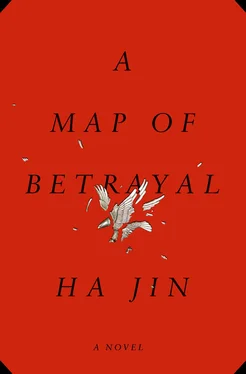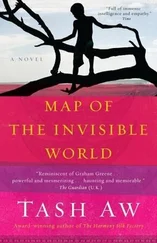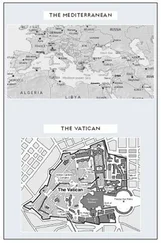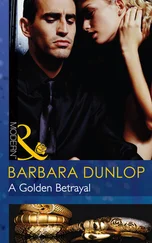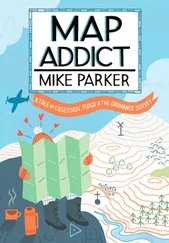He turned to speak Cantonese to a moonfaced waitress, who had greeted him in a friendly manner. I was impressed by his fluency in the dialect, and when the woman moved away, I asked him how he knew the language. “I lived in Guangzhou for a while” was his answer. I remembered that my father had complained in his diary that he couldn’t make head or tail of Cantonese when he visited Hong Kong. Once he observed, “They seem to call everyone a devil.”
Ben wanted to know how his parents and siblings were doing. I assured him that they were well but anxious to know what he was up to. While talking, I couldn’t help wondering how much he knew about my father. I hadn’t mentioned Gary to him yet, unable to bring myself to give him too much all at once. Our order came — he had steamed chow mein and I fish congee. We shared two dishes, sautéed green beans and orange chicken. I enjoyed such a simple, good meal and was glad to see that Ben wasn’t eating like a glutton. He said what he disliked most in China were banquets, which tended to be too wasteful. Indeed, I had noticed that some Chinese, particularly the nouveaux riches, identified lavishness and swank luxury with a high-quality life. Many young women wouldn’t hesitate to blow a whole month’s wages for a brand-name bag, a Louis Vuitton or Gucci or Kate Spade. They cared too much about appearances and price tags. I was often bemused by the way my young colleagues in Beijing spent money—“like running a tap,” in their own words. Given the pragmatic nature of the Chinese, they should have been more practical.
Ben went on to say about banquets, “After three or four dishes you can hardly taste any difference in what follows. What’s the point of eating course after course? It’s just wasteful. I knew people who were nicknamed different types of gluttons, like Great Eater, Expert Eater, and Indiscriminate Eater. Without exception they were proud of their nicknames. A genuine Chinese reform must start with the dining table.” Ben laughed, and so did I.
“The eating culture there bothered me too,” I admitted. “At some sumptuous dinners in Beijing I couldn’t stop wondering whose money we were spending. I once spoke with an official seated next to me at a table, and he said he would dine out five or six evenings a week. It was his job to accompany his bureau’s guests.”
“And the taxpayers would foot the bills, of course,” Ben said.
“So dining reform is a serious business, like political reform?”
“Number one priority to me, because most people, regardless of their ideologies, will support such a concrete change.”
When we were done with dinner, I waved for the check, but Ben was adamant about picking up the tab, saying I was his guest. I let him. He also asked for a doggie bag, which I appreciated. (Many Chinese, ostentatiously lavish, wouldn’t bother about leftovers at restaurants. The truth is that poverty and extravagance often go hand in hand.) Together Ben and I headed back to his apartment.
Over tea, I shared with him some photos of my father. One of them showed Gary hosing down his Buick Century. “So he had a luxury car,” Ben said, the corners of his mouth tilting up a little.
“He always drove a Buick.”
“I love American cars too, roomy, sturdy, and powerful. I have a Mustang.”
“A gas guzzler, isn’t it?”
“I don’t mind.”
Most Chinese expats and immigrants would have a Toyota Corolla or Hyundai Elantra for a first car; Ben seemed to have unusual taste. In another photo Gary was blowing at the conical flames of candles planted on a cake, the smile on his face crinkling the corners of his eyes. Nellie and I were standing by, clapping our hands while singing “Happy Birthday.” Ben put down the picture and breathed a small sigh.
I took a sip of high mountain tea (one of my favorite Taiwanese teas), amused that we were still using handleless cups like those in a Chinese restaurant. “You look sad,” I told Ben.
“Your mother had blond hair and blue eyes.”
“Her eyes were gray actually.”
“She was blond.”
“She and your grandfather made a handsome couple, in some people’s opinion. His American name is Gary, by the way.”
“I used to think he had lived a miserable life here, if not in destitution, and he sacrificed himself for our country.”
I didn’t know how to respond, unable to grasp what Ben meant. I managed to say, “He loved China of course.”
“Like him, I’ve been working hard for my country.”
“I hope you’re not a spy, though,” I said. He laughed.
Gradually our conversation shifted to patriotism, which seemed to have possessed some young Chinese, who often claimed they wouldn’t hesitate to sacrifice themselves for their motherland. They insisted that their love for the country was unconditional, and many of them were proud of being nationalists. Ben and I couldn’t see eye to eye on this issue. I told him that I loved America, but not more than I loved my husband. I believe that a country is not a temple but a mansion built by the citizens so they can have shelter and protection in it. Such a construction can be repaired, renovated, altered, and even overhauled if necessary. If the house isn’t suitable for you, you should be entitled to look for shelter elsewhere. Such freedom of migration will make the government responsible for keeping the house safe and more habitable for its citizens. I went on to say, “It’s unreasonable to deify a country and it’s insane to let it lord over you. We must ask this question: On what basis should a country be raised above the citizens who created it? History has proved that a country can get crazier and more vicious than an average person.”
My argument caught Ben by surprise. He muttered, “Still, I love China unconditionally.”
“What if you have joined the church?” I asked. “A good Christian must never place his country above God. According to Christianity, God created humans first, so a human being is more sacred and must come before a country.”
Ben stared at me. I went on, “See, patriotism has become a religion to you. That’s dangerous. Now, come to think of it — what if your country has betrayed you or violated some basic principles of humanity? Will you still love it unconditionally?” Seeing him wordless, I added, “Loyalty must be sustained by mutual trust. It’s a two-way street. To be honest, many Chinese are ardent patriots because their existence depends on the state. As a result, they cannot envision an existence outside their country, and to them, nothing can be bigger and higher than China, which is actually a historical construct. Two centuries ago if you asked the ordinary Chinese about their nationality, they’d go blank, because they didn’t even have the concept of citizenship. China has never been a fixed entity, and its borders have changed constantly. So have its ethnic groups.”
“You’re American while I’m Chinese,” Ben said, his upper lip curled a little as if my remarks irritated him.
“Don’t let nationality stand between us. We are family,” I responded, flinging up my hand and then scratching my temple.
He grinned. “Sure we are. I’ll always have you as my aunt.”
I realized Ben might be ignorant of China’s treatment of his grandfather. Reluctant to share the whole story with him at the moment, I said, “Ben, I want you to remember this caveat: ‘The unexamined life is not worth living.’ ”
“Is that from a philosopher or a sage?”
“Socrates. Please be aware of the forces around you and assess yourself constantly. Your grandfather was an intelligent man, but he didn’t examine his life carefully and lived blind as a result.”
“Okay, I will remember,” Ben said offhandedly.
Before going to sleep that night, I thought about giving him a full account of my father’s life, but I decided to wait. The truth might be too upsetting to him, I thought, so I’d better disclose it gradually.
Читать дальше
